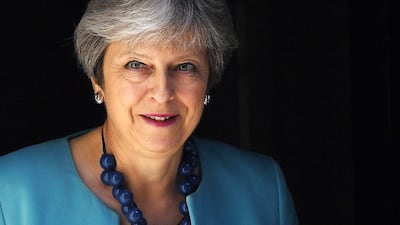The UK was accused on Thursday of an “inexcusable” failure to prevent the abuse and torture of hundreds of people detained following the September 11 attacks on the United States.
British officials knew about US mistreatment of detainees, but often failed to properly investigate, according to a damning report that detailed Britain’s complicity in human-rights abuses over a decade.
The report found that the UK paid for so-called rendition flights to take detained terrorism suspects for questioning despite the real risk of torture or inhumane treatment, according to a report by MPs who oversee the work of the security and intelligence agencies.
“The 27 conclusions contained in the body of this report outline some serious concerns: in our view, the UK tolerated actions and took others, that we regard as inexcusable,” said committee chairman Dominic Grieve.
The report said that UK officials were involved in up to 3,000 interviews in Guantanamo Bay, Afghanistan and Iraq. It found no evidence of direct British physical mistreatment of detainees, but said there were dozens of cases where officials knew what was going on.
Shaker Aamer, a Saudi national and British resident detained in Afghanistan in 2001, claimed in court papers in 2010 that a British officer was present when he his head was repeatedly hit against the wall. Police were not able to identify the intelligence officer and the committee was unable to substantiate the claim.
Police also launched an inquiry after a detainee claimed he had been abused by a British officer and beaten with a a baseball bat while in detention at the Bagram US airbase in Afghanistan. The investigation was closed after his claims could not be independently verified.
The report said that it was “difficult to comprehend” that officials at the top of the intelligence services were not aware of the pattern of mistreatment by US officials, but found no “smoking gun” to suggest British agencies deliberately overlooked reports of mistreatment.
______________
Read more:
Trump CIA nominee sought to withdraw over interrogation role
Trump's CIA chief will not revive agency's controversial interrogation programme
______________
Prime Minister Theresa May was responsible for blocking officials from appearing before the committee, , limiting the conclusions it could reach. “We were not given the necessary access and powers to carry this out,” Mr Grieve said.
Ministers first officially learned of the mistreatment in 2005, though allegations were aired before then, the committee found. Then home secretary Jack Straw - who was responsible for the work of Britain's intelligence activities between 2001 and 2006 - said that he was kept in the dark about what was happening.
"I have today learnt much about the activities and the approach of these agencies of which I was not aware before," he said in a statement.
The MPs found that there was evidence of two cases where British personnel were “party to mistreatment administered by others”. Only one of the cases was investigated by police and did not lead to a prosecution.
In more than 400 cases, British officials supplied or received intelligence on detainees they suspected of being mistreated. Despite being a junior partner, the British government could have influenced US behaviour, the report found. “More could also have been done to distance themselves from mistreatment of detainees,” it said.
The report was released a month after the British government apologised for the illegal rendition of a former Libyan rebel commander who says he was tortured by the Qaddafi regime.
Abdul Hakim Belhaj was snatched along with his wife in South East Asia in 2004 in a CIA-led operation based on intelligence supplied by the UK. He was held in a Libyan jail for six years, during which time he was questioned by UK officers.
Mr Belhaj was once the head of the Libyan Islamic Fighting Group and fled to Afghanistan where he reportedly formed close relationships with senior Al Qaeda leaders. He has always denied links to the group.
The committee said it was "astonishing" that the government had failed to act on tightening rules to prevent illegal rendition. "We are unconvinced that the government recognises the seriousness of rendition and the potential for the UK to be complicit in actions which may lead to torture,” it said.
The report was mired in controversy after claims that it was censored by the US and following a series of delays in the UK. Mr Grieve said before the report’s release that only one matter within the 336 pages from two reports had been redacted to meet US security concerns.
The British government had, however, demanded a “substantial number of redactions” to remove names, nations and locations from the report.
Rights groups have called for an independent inquiry to get to the bottom of the allegations.The inquiry was initially commissioned in 2010 when then premier David Cameron promised a short and sharp process.
Mr Grieve said his committee decided to publish its report on Thursday after the government blocked efforts last year to speak with officers involved at the time. “The committee has therefore concluded – reluctantly – that it must draw a line under the inquiry,” Mr Grieve said.
In a statement, Mrs May said that alleged threats made to by intelligence officers to detainees were "clearly unacceptable" and claimed that improvements had been made to oversee their work.


